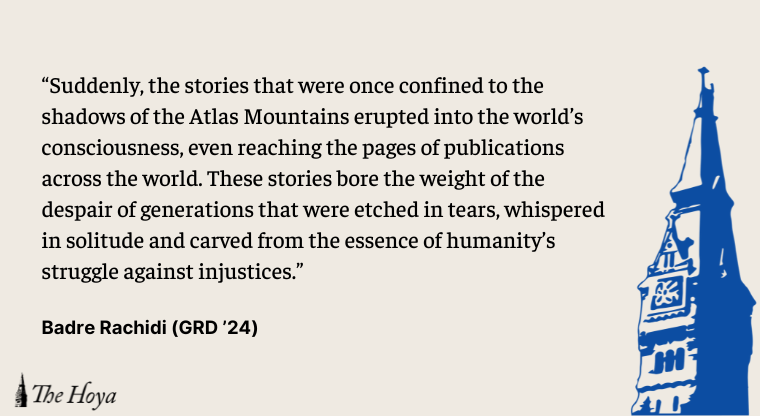In the wake of a devastating earthquake that shook Morocco’s High Atlas Mountains, the world was exposed not only to a natural calamity, but also to the state of impoverished Moroccan communities who live in conditions that defy basic human dignity.
As the very Earth trembles beneath the Atlas’ inhabitants, it lays bare the profound scars of their exclusion, which casts a poignant light upon their struggles and demands urgent attention to address their socioeconomic marginalization.
The earthquake that struck Morocco’s Atlas Mountains region was a devastating twist of fate for a population already living in dire conditions.
The region’s inhabitants include the traditional Amazigh communities, one of the most impoverished segments of Moroccan society in terms of literacy, infant mortality, access to potable water, electricity and other development indicators.
To comprehend the depth of injustices faced by the Atlas’ inhabitants, one must understand their history.
The Atlas Mountains have historically represented a unique environmental, political, economic and cultural identity.
During the Protectorate era, Morocco was divided by the French colonial administration into two zones: “Maroc utile” (useful Morocco), which comprised the fertile agricultural plains, and “Maroc inutile” (useless Morocco), which included the Atlas Mountains where the locals fiercely resisted colonization.
The colonists privileged the utile zone, shaping the fate of the Amazigh communities in the Atlas mountains.
Furthermore, the current Moroccan government’s policies have continued to heighten the socioeconomic marginalization of these communities by directing investment toward urbanized regions and tourist destinations, such as Marrakech, Agadir, Tangier and Casablanca, far from the Atlas Mountains.
The recent earthquake only exacerbated these inequities.
The loss of life was tragic, with many people trapped under rubble for days before receiving aid. According to official statistics, nearly 3,000 people lost their lives, 5,674 were injured and approximately 60,000 households in 2,930 villages were partially or completely demolished. An estimated 2.8 million individuals were impacted, with many still experiencing the accompanying psychological distress and lacking essential amenities.
What sets this calamity apart from others in the history of Morocco is that it not only rocked the foundations of the Atlas Mountains, but also shattered the long-standing media blackout that had shielded the plight of these marginalized communities from public attention.
Suddenly, the stories that were once confined to the shadows of the Atlas Mountains erupted into the world’s consciousness, even reaching the pages of publications across the world. These stories bore the weight of the despair of generations that were etched in tears, whispered in solitude and carved from the essence of humanity’s struggle against injustices.
As we are forced to reckon with the injustices faced by the people of the Atlas, we must provide support for the immediate impacts of the earthquake on these communities.
A group of students and alumni of the Center for Contemporary Arab Studies at Georgetown University compiled a list of organizations and resources working to support victims in Morocco. A GoFundMe and a Resilient Communities fundraiser also provide medium and long-term relief to support agricultural restoration in the High Atlas Mountains.
Students and the broader Georgetown community must recognize the significance of the destruction in Morocco and should donate to these relief funds if they have the means.
This earthquake has laid bare the glaring disparities in Moroccan society, and it is now the responsibility of both the Moroccan government and the world to listen to the voices of the Atlas Mountains’ inhabitants. As onlookers, we can help elevate these voices by working to inform ourselves and by donating to relief funds.
The people who call this region home have endured hardships for far too long, and their demands for basic infrastructure and essential services, such as well-constructed roads, clean water, sanitation, decent schools and functional hospitals, must be met without further delay. People of the Atlas deserve a life that is not constantly consumed by the struggle for survival.
It is thus our collective responsibility, as global citizens, to ensure that their cries for justice are heard and acted upon. Let the Hoya community stand together in solidarity with the people of the Atlas, donate to support their cause and demand the change they so rightfully deserve.
Badre Rachidi is a second-year graduate student.














